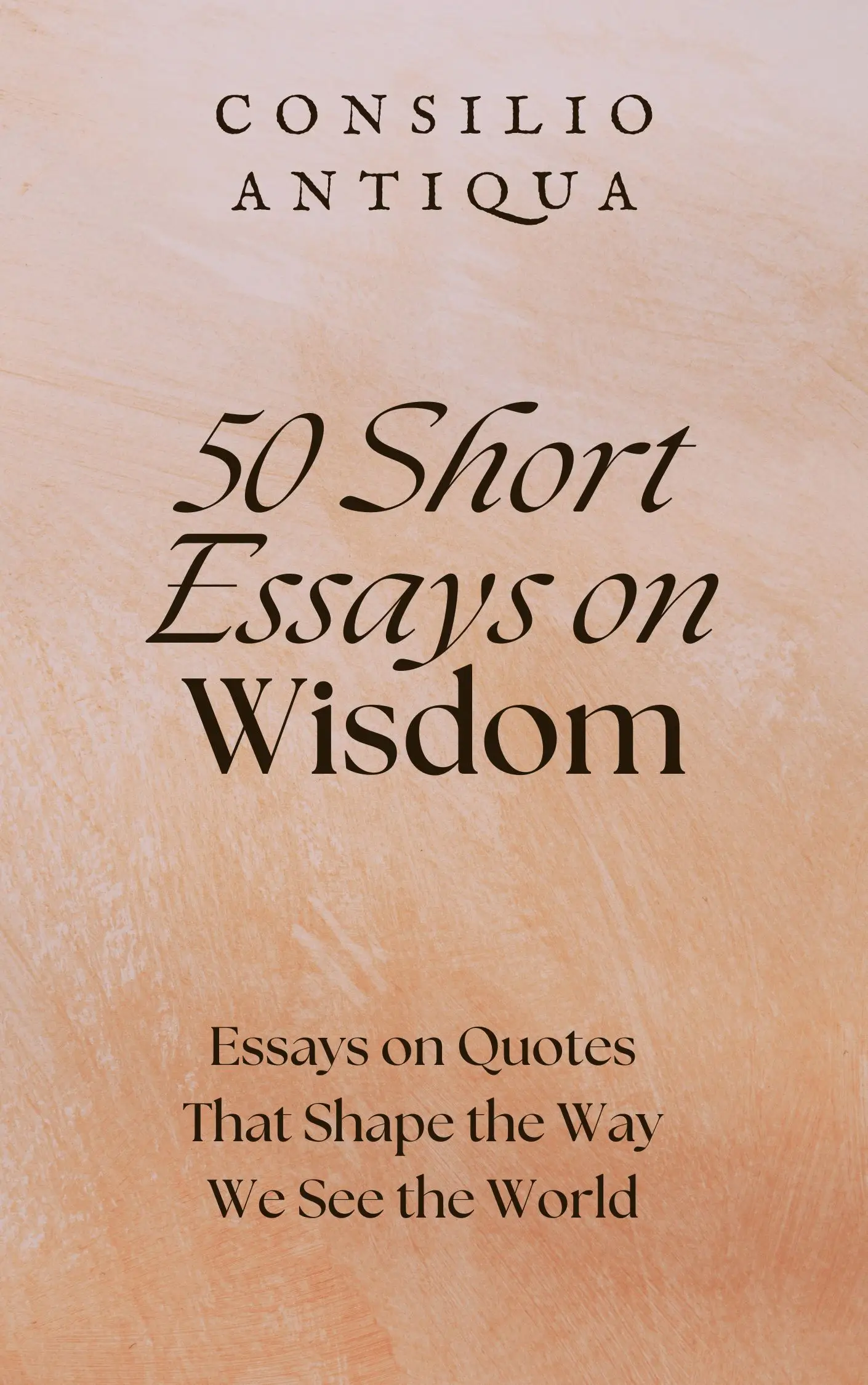
50 Short Essays on Wisdom | The Unquenchable Thirst
The Unquenchable Thirst
“Suffering is caused by craving.” – The Buddha
The chipped porcelain teacup warmed my hands, the steam a fragrant cloud against the pre-dawn chill. Outside, the city stirred, a low hum of awakening desires. Yet, within the quiet of my small kitchen, a different kind of awakening unfolded. It was a recognition, a slow dawning awareness of the subtle, persistent ache of craving – the undercurrent that shapes so much of our experience. This essay explores the Buddhist teaching that suffering stems from craving, examining its timeless wisdom and its surprisingly contemporary relevance.
The concept of craving, or tanha in Pali, is central to Buddhist philosophy. Originating in ancient India, it’s not merely a desire for material possessions; it encompasses a deeper longing – for pleasure, security, self-affirmation, and the avoidance of pain. The Buddha, through his own profound journey of suffering and enlightenment, identified this craving as the root of dukkha, often translated as suffering, dissatisfaction, or unsatisfactoriness. Ancient texts like the Dhammapada eloquently detail the insidious nature of this craving, illustrating how it binds us to the cycle of samsara – the continuous cycle of birth, death, and rebirth.
At its core, the teaching reveals a simple yet profound truth: our suffering isn't caused by external circumstances alone, but by our relentless pursuit of things that ultimately fail to satisfy. This pursuit, fueled by the illusion of permanence and self, creates a constant state of dissatisfaction. We crave pleasure, yet pleasure is fleeting. We crave security, yet life is inherently uncertain. We crave self-affirmation, yet our sense of self is constantly shifting. This inherent instability is the source of our pain. The craving itself, the relentless grasping, becomes the suffering.
In our modern world, this ancient wisdom resonates with startling clarity. The relentless pursuit of material possessions, fueled by advertising and consumerism, mirrors the ancient craving for sensual pleasures. The addictive nature of social media, the constant need for validation and external approval, reflects a craving for self-affirmation. The anxiety surrounding relationships, the fear of loneliness and rejection, reveals a craving for security and belonging. These cravings, though manifesting in different forms, share a common thread: the illusion that external factors can fill an internal void.
Consider the young professional, perpetually chasing promotions and accolades, sacrificing personal well-being for career success. Or the individual scrolling endlessly through social media, comparing themselves to curated online personas, feeling inadequate and unseen. These are but two examples of how the relentless pursuit of something more – more wealth, more status, more validation – perpetuates a cycle of dissatisfaction. The irony is that the very act of grasping, of clinging to these desires, intensifies the suffering.
The path to liberation, as Buddhism suggests, lies not in suppressing desire entirely, but in cultivating a mindful awareness of our cravings. By observing our desires without judgment, we begin to see their impermanent nature. We begin to understand that true fulfillment doesn't lie in external acquisition, but in cultivating inner peace and acceptance. This is not a passive resignation, but an active cultivation of presence, compassion, and a deeper understanding of the interconnectedness of all things. What if, instead of chasing fleeting pleasures, we cultivated contentment in the present moment? What would that release?
In the quiet stillness of my kitchen, the tea has cooled. Yet, the warmth of that understanding lingers. The path is not easy, the cravings persistent. But the recognition itself, the awareness of the unquenchable thirst driving so much of our suffering, is a first step towards liberation. It is a journey of self-discovery, a gradual letting go, a quiet unfolding of peace.
